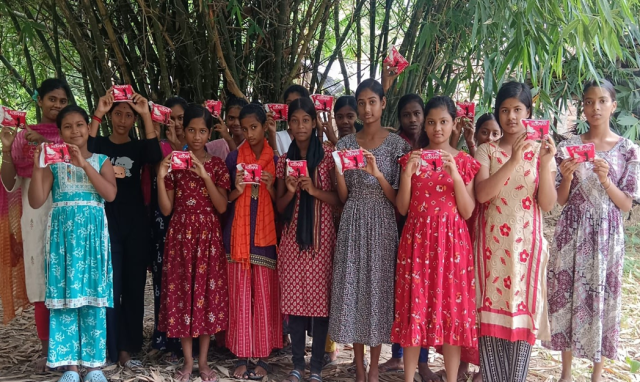Restoring Dignity, One Pad at a Time
For too long, menstruation has been shrouded in silence. In many rural communities across India, it remains one of the most stigmatized aspects of daily life. Girls miss school. Women miss work. Families whisper about periods as if they were something shameful. The result is devastating — compromised health, lost opportunities, and a cycle of shame that repeats generation after generation.
At Yoga Gives Back (YGB), we believe that yoga’s birthplace deserves more. In partnership with Nishtha, The Pad Project, and the Trotula Fund, we have been working to change this reality in West Bengal. Together, we are breaking the silence, providing access to safe menstrual products, and empowering women to lead the change in their communities.
This year’s Nirman Pad Project Annual Report (Sept 2024 – Aug 2025) tells a powerful story of courage, resilience, and transformation. Despite countless challenges — from raw material shortages to machinery breakdowns — the women of Nishtha refused to stop. They knew that every pad produced meant one more girl could stay in school, one more woman could go to work, and one more family could begin to speak openly about menstruation.
👉 Learn more about The Pad Project
From Taboo to Transformation
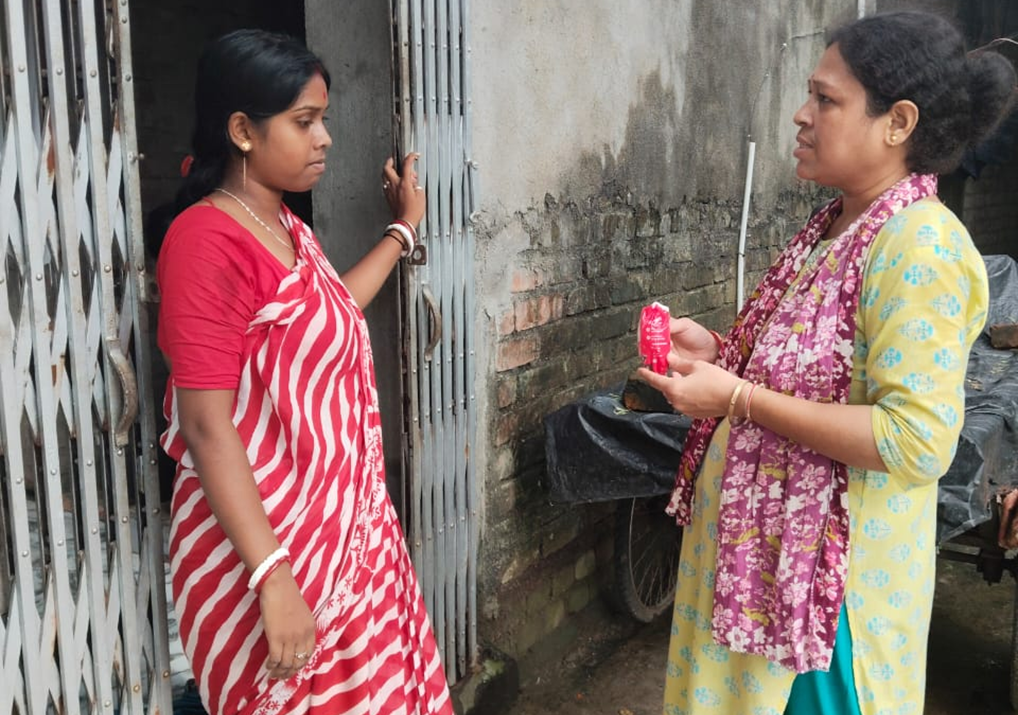
Menstrual health is not just about pads. It is about dignity, agency, and equality. The Pad Project’s approach combines affordable access to menstrual products, community education, and women’s empowerment through employment.
Over the past year, the project:
Produced over 22,000 pads despite production hurdles.
Distributed more than 15,000 pads free of cost, ensuring no girl or woman was forced to miss school or work.
Reached 6,600 girls and women and 61 boys and men through awareness programs, community theater, and door-to-door visits.
Engaged teachers, ASHA workers, and local leaders to normalize discussions around menstruation.
These numbers are more than statistics. They represent conversations held, myths broken, and barriers lifted. They represent the growing courage of girls who once stayed home during their periods but now walk confidently into their classrooms.
Women Leading the Way
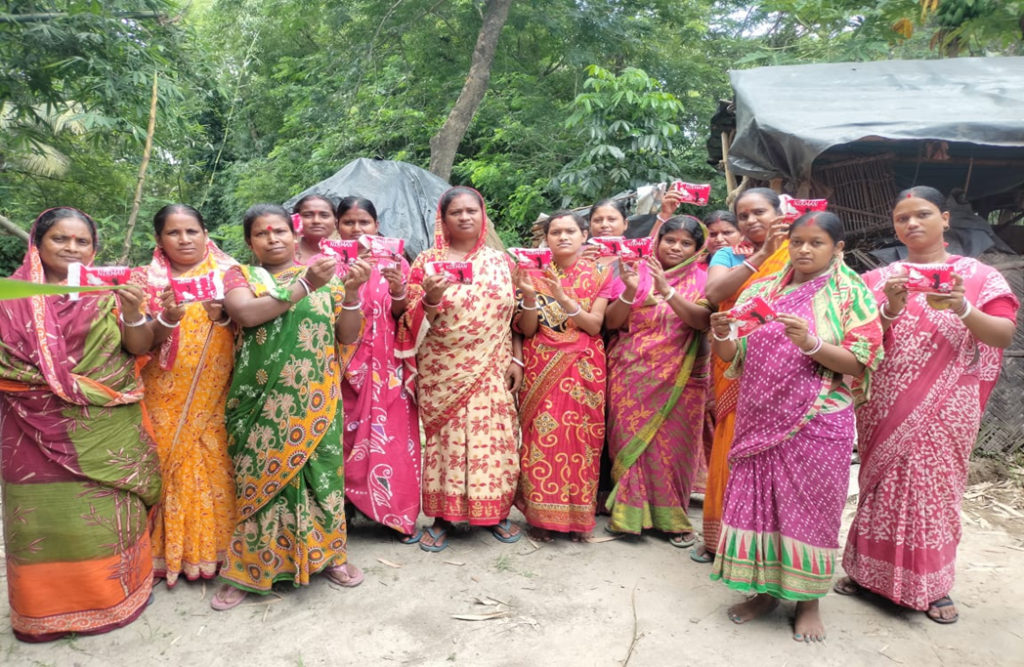
At the center of this change is the Nirman Sanitary Pad Production Unit, a women-led enterprise where dignity and empowerment go hand in hand.
Seven women form the backbone of production, carefully crafting low-cost, high-quality pads that are distributed across villages. Another twenty-five women serve as educators and distributors, carrying conversations about menstrual health into homes, schools, and community spaces where silence once prevailed.
This year, the project piloted small-scale sales efforts, training women to sell Nirman pads within their own communities. For the first time, women who were once silent about menstruation are now not only talking about it but also leading a sustainable, income-generating movement.
This is what empowerment looks like: women turning a taboo into an opportunity for dignity and independence.
A Mother’s Fight for Dignity: Tapati’s Story

Behind every number is a life transformed. One such life is that of Tapati Sardar, a 30-year-old mother from South 24 Parganas.
Married at a very young age, Tapati quickly discovered a life of hardship. Her husband refused to work, and when she pleaded with him to provide for their family, he became violent. Time and again, she was sent back to her parents’ home, humiliated and heartbroken.
But Tapati’s spirit was not easily broken. When she gave birth to her son, Rakesh, she resolved to create a better future for him — one free from fear and instability. Through Nishtha, Tapati joined YGB’s Sister Aid Program, where she learned tailoring and embroidery. With a small loan, she purchased a sewing machine and began earning her first independent income.
This marked the beginning of her transformation.
In 2025, Tapati joined the Pad Project team. That August, she sold her first 100 packets of Nirman sanitary pads in her community. With every sale, she not only earned an income but also broke another layer of silence surrounding menstruation.
Today, her earnings support her household and fund Rakesh’s education. A bright science student, Rakesh dreams of becoming a doctor. Tapati works tirelessly — stitching late into the night and selling pads by day — determined that financial hardship will not stand in the way of her son’s aspirations.
Tapati’s story is not just about survival. It is about courage, resilience, and the quiet power of a mother who refused to give up. She is living proof of how education, microloans, and menstrual equity programs can transform entire families.
Breaking Myths, Building Confidence
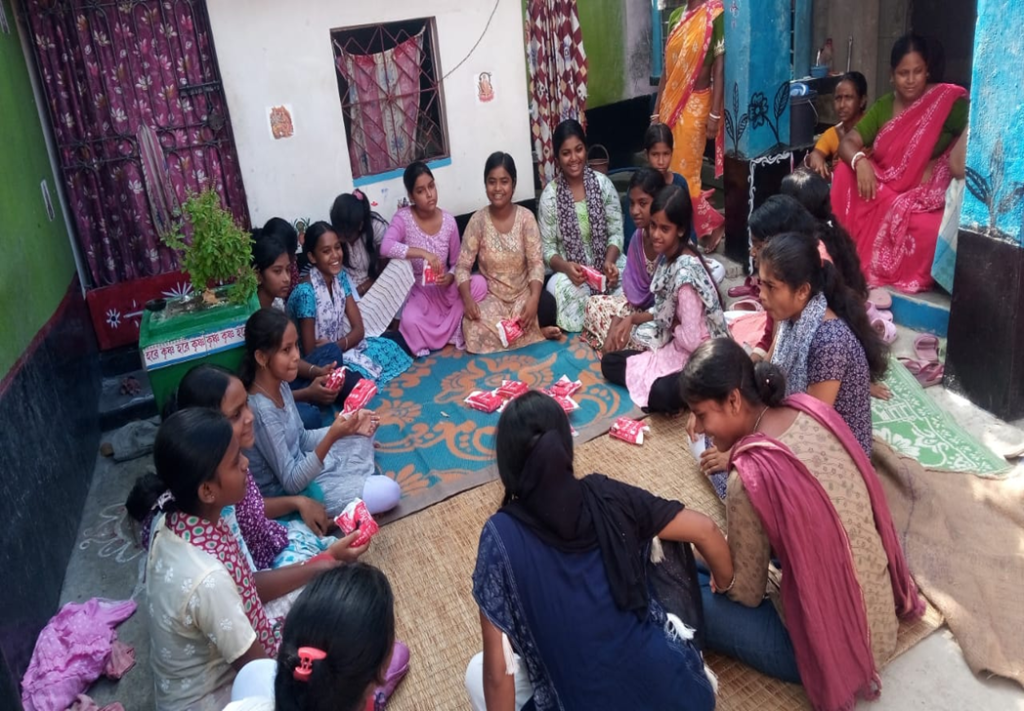
The Pad Project is as much about conversation as it is about pads. In villages where menstruation was once unspeakable, community meetings and school sessions are creating safe spaces for dialogue.
Girls now ask questions openly. Teachers have become advocates, encouraging their students to share what they learn with family members. For the first time, adolescent boys are being included in sessions, helping to reduce stigma and foster understanding.
These breakthroughs may seem small, but they represent seismic cultural shifts. One girl’s confidence to raise her hand in class. One mother’s decision to support her daughter instead of shaming her. One father’s willingness to buy pads from the local shop. Each is a step toward a future where menstruation is no longer a barrier but simply a fact of life.
Building a Future of Sustainability
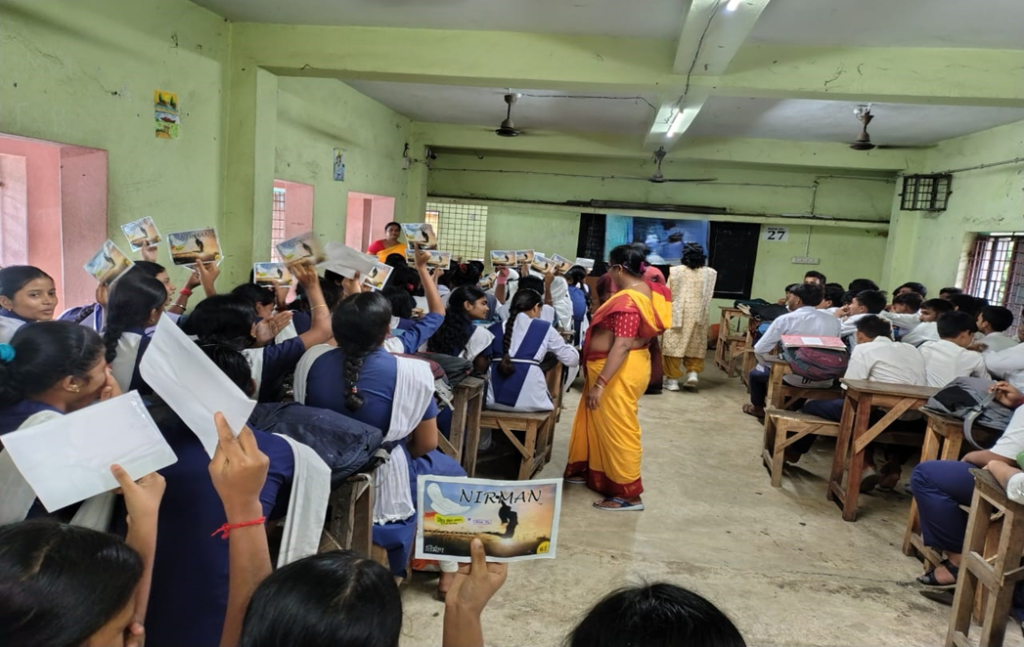
While progress has been inspiring, challenges remain. Unreliable raw material supply, machine breakdowns, and lingering taboos continue to test the resilience of the program. To build long-term sustainability, the Pad Project is focusing on:
Securing consistent, high-quality raw materials.
Scaling up production to meet rising community demand.
Strengthening the women-led sales model to generate stable income.
Expanding outreach and advocacy to ensure every girl and woman has access to menstrual health education.
The vision is clear: a future where Nirman pads are not only available in every village shop but also produced and sold by women who are financially independent and socially empowered.
With 44,000 women and girls already connected through Nishtha’s network of Mahila Mandal and Kishori Vahini groups, the potential for lasting impact is immense.
👉 Donate today to support menstrual equity
Gratitude in Action
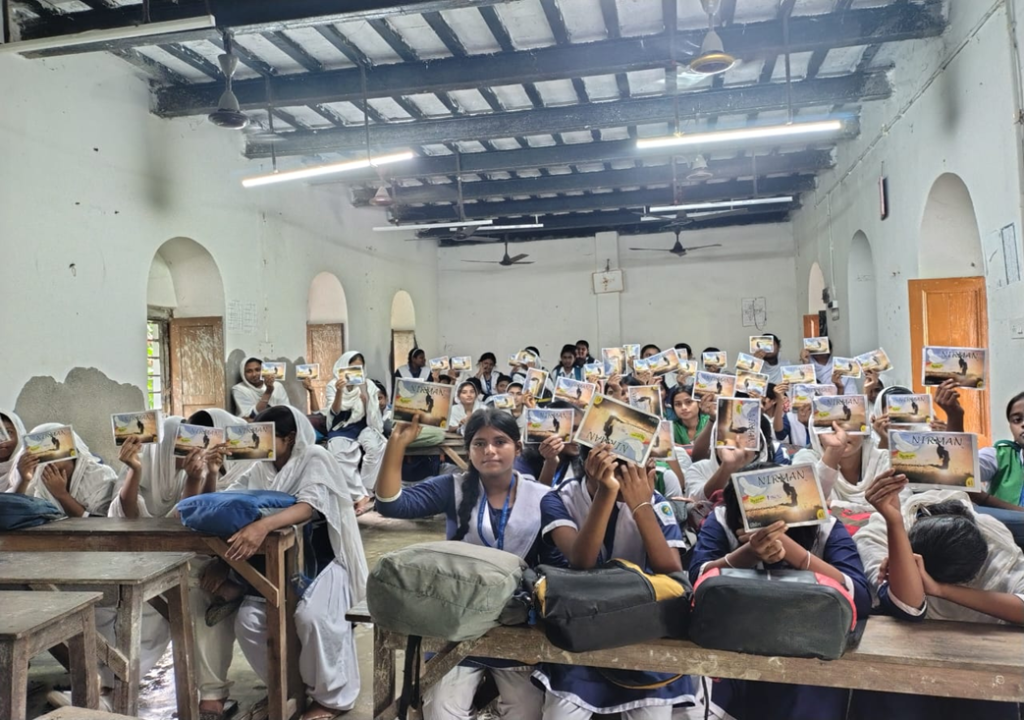
This year’s successes were possible because of the unyielding support from The Pad Project, the Trotula Fund, and the global YGB community. Your generosity has not only kept production alive during difficult months but also empowered women to step into leadership roles, restored dignity to countless girls, and sparked a ripple effect of conversations that are breaking centuries of silence.
As YGB often says: “For the cost of one yoga class, you can change a life.” Nowhere is this truer than in the villages of South 24 Parganas, where one small act of support translates into pads, dignity, education, and opportunity.
Be Part of the Change
Every pad counts. Every conversation matters. Every donation makes a difference.
💛 Join us in building a future where no girl misses school because of her period.
👉 Follow us on Instagram for more stories of resilience and hope
Together, we can break the silence. Together, we can ensure that menstrual health is not a privilege but a right for every woman and girl.



